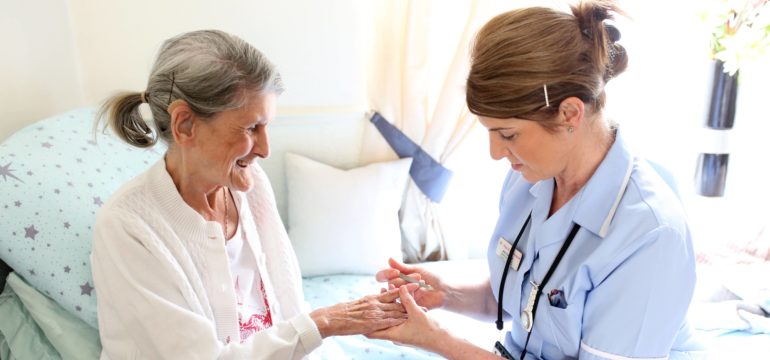
Sixty years ago there were no hospices in the UK providing specialist care for those at the end of their lives.
The hospice movement is one of the UK’s great success stories. From just one voluntary hospice established in 1967 the hospice movement has made rapid advances, both within the UK and around the world, changing forever the way people are treated when faced with a life-limiting illness.
A primary service of a hospice is to provide ‘palliative care‘ – that is care for people whose illness is no longer curable, which enables them to achieve the best possible quality of life. A hospice also provides support for carers and family members.
The modern hospice movement
The inspiration for the modern hospice came from Dame Cicely Saunders. She had started work as a volunteer nurse in 1948 and, over the next decade, trained as a doctor to understand the issues surrounding care of the dying.
Dame Cicely identified the need for a place specifically to provide end of life care through a friendship she had struck up with a patient under her care. This patient spent the last two months of his life on a busy surgical ward, simply because there was nowhere else he could go.
Dame Cicely pioneered and oversaw the opening of St Christopher’s Hospice in London in 1967 created as a medical, teaching and research facility dedicated to the physical, emotional and spiritual care of the dying.
“You matter because you are you and you matter until the last moment of your life. We will do all we can, not only to help you die peacefully but to live until you die.” – Dame Cicely Saunders, founder of the UK hospice movement
The growth of modern hospices
Hospice care has grown into a worldwide movement that has radically changed the way in which we approach death and dying. In hospices multi-disciplinary teams strive to offer dignity, peace and calm at the end of life. There are now over 200 independent charitable hospices across the UK.
Hospices have transitioned from places of ‘generalist’ care to organisations which provide truly specialist end-of-life care and a range of services which enhance the lives of patients, carers and families. Research into pain management and symptom control has driven the belief that palliative medicine is an important part of the ‘total care’ of a patient.
Every year in the UK, hospices provide vital care to 200,000 people with terminal or life-limiting illnesses, as well as provided support for many of their loved ones. From managing someone’s pain, to looking after their emotional, spiritual and social needs, hospice care supports the whole person, helping them to live their life to the full.